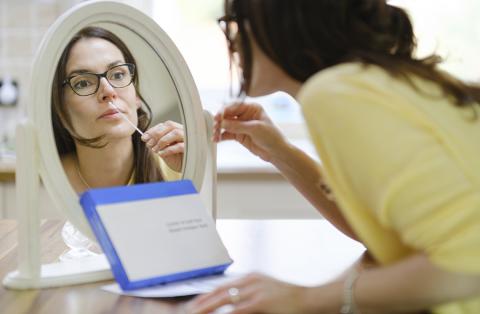CDC, NIH Collaborate to Bring Covid Self-Testing to Two Communities

Photo: Photo: Ellen Moran/Getty
Can frequent, self-administered Covid-19 testing help reduce community transmission? The CDC and NIH are teaming up on a community health initiative, “Say Yes! COVID Test,” to find out.
As many as 160,000 residents across Pitt County, N.C. and Chattanooga/Hamilton County, Tenn., will have access to free, rapid home-based antigen tests to use 3 times a week for 1 month.
“This testing initiative is the first of this scale to attempt to make free, rapid, self-administered tests available community-wide,” said NIH director Dr. Francis Collins. “We hope to gain foundational data that can guide how communities can use self-administered tests to mitigate viral transmission during this and future pandemics.”
NIH is supplying those residents with the QuickVue test, developed by the company Quidel, which has received FDA emergency use authorization for at-home use with a prescription. The test, performed with a nasal swab, returns results within 10 minutes. The companion online tool was developed by CareEvolution, with funding support from NIH.
This program will be facilitated by local health departments. A key component is ensuring that vulnerable and underserved populations are aware and able to benefit from the opportunity. The communities were selected based on local infection rates, Covid tracking data, community relationships through NIH’s Rapid Acceleration of Diagnostics Underserved Populations (RADx-Up) and local infrastructure to support the project.
Researchers at NIH-supported University of North Carolina at Chapel Hill and Duke University will work with the CDC and NIH to use publicly available Covid-19 case surveillance data on test positivity rates, Covid-related illness and hospitalizations and measurements of viral particles in sewage wastewater to evaluate viral transmission in the community. At the same time, publicly available data will be reviewed from similar-sized communities that have not received widespread self-administered tests to evaluate the program’s impact.
Participants will also have the option to participate in a survey designed to determine whether frequent self-administered testing has made a difference in behavior, knowledge on preventing spread of the virus and thoughts about Covid vaccination.
“If self-testing is shown to effectively reduce viral spread in the selected communities,” said Dr. Elizabeth DiNenno, CDC associate deputy director for surveillance, epidemiology and laboratory sciences, “the hope is that it will lead to wider distribution and acceptance of frequent home testing across the country.”
